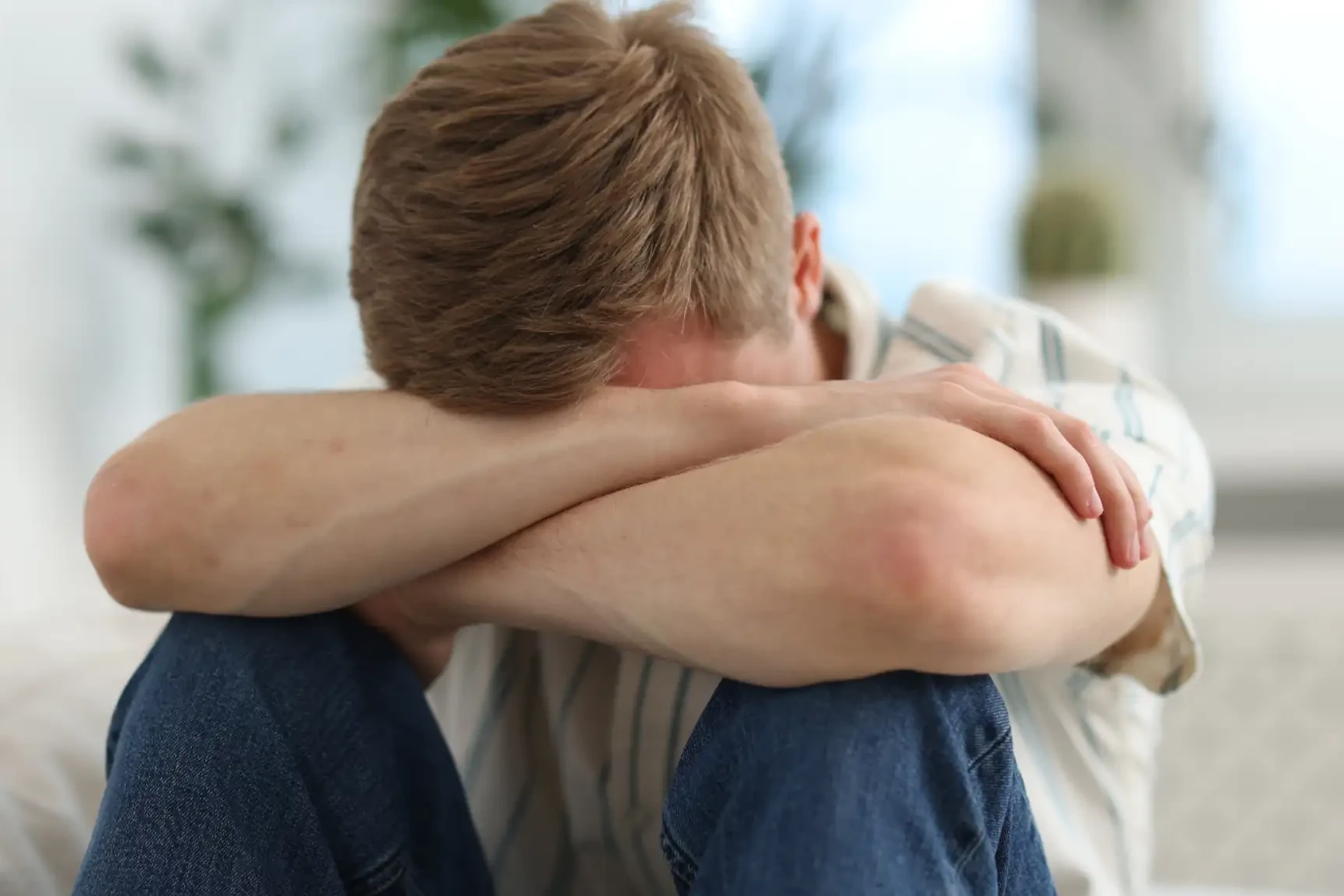Ever feel that knot of worry tightening in your stomach when a loved one walks out the door? Or maybe the thought of your child heading to school brings on a wave of unease that feels bigger than just a little concern? If so, you’re not alone. Separation anxiety is more than just a bit of clinginess – it’s a real and often intense experience that can affect anyone, from the littlest kids bravely facing their first day of kindergarten to adults navigating the complexities of relationships and independence.
This isn’t about being “too sensitive” or “making a fuss.” It’s a genuine emotional response that, when it becomes overwhelming and starts to interfere with daily life, deserves our attention and understanding. The good news is that if separation anxiety feels like a shadow looming over you or your child, there’s a path forward. This article dives deep into the world of therapy for separation anxiety, exploring effective strategies and offering a beacon of hope. Whether you’re a parent seeking answers for your child or an adult recognizing these feelings in yourself, let’s explore the ways you can reclaim confidence, find peace, and build stronger, more secure connections – even when apart.
Table of Contents
ToggleUnderstanding Separation Anxiety Disorder

Separation Anxiety Disorder (SAD) is characterized by extreme fear or worry about being separated from attachment figures—typically parents, guardians, or partners. It’s considered a disorder when it interferes with normal functioning, such as school attendance, work, or social interaction.
Key Symptoms
- Fear of being alone or away from caregivers
- Nightmares about separation
- Physical symptoms (headaches, stomachaches) when anticipating separation
- Refusal to go to school or sleep alone
- Worrying excessively about the safety of loved ones
What Causes Separation Anxiety?
The causes are multifaceted:
- Genetic predisposition
- Traumatic events (e.g., divorce, illness, loss)
- Parenting style (overprotectiveness)
- Insecure attachment during early development
Prevalence and Impact
Separation anxiety affects approximately 4–5% of children but can also continue or begin in adulthood. Girls are slightly more affected than boys. If left untreated, the condition can lead to:
- Academic decline
- Social isolation
- Panic disorders or depression later in life
Early identification and treatment are key to positive outcomes.
Diagnosis of Separation Anxiety Disorder
A licensed psychologist or psychiatrist typically performs the diagnosis. This involves:
1. Psychological Evaluation
Includes structured interviews with the child and parents or, in adult cases, the individual and their family members.
2. Diagnostic Criteria
Symptoms must be present for at least four weeks in children and six months in adults and must cause significant distress or impairment in daily functioning.
Therapy for Separation Anxiety
The cornerstone of treatment is therapy, often combined with lifestyle changes and sometimes medication.
1. Cognitive Behavioral Therapy (CBT)
How It Works:
CBT teaches individuals to recognize and challenge their irrational fears. A major technique within CBT for SAD is exposure therapy , which gradually exposes the person to feared separation scenarios to build tolerance.
Example:
A child afraid of school might start by being away from their parent for 5 minutes, then gradually increase the duration.
Benefits of CBT:
- Evidence-based
- Helps children and adults
- Reduces relapse rates
2. Emotion-Focused CBT (ECBT)
This variation of CBT is tailored for children. It focuses on helping them:
- Identify emotional responses
- Regulate feelings like panic or fear
- Express emotions safely
ECBT incorporates tools like storytelling, drawing, and role-play, making it engaging for younger kids.
3. Parent-Child Interaction Therapy (PCIT)
What It Is:
PCIT involves both the child and parent. It focuses on building secure attachments and managing behavior in younger children.
Core Component: Bravery-Directed Interaction (BDI)
BDI uses a bravery ladder—small steps that gradually increase a child’s tolerance for separation. Parents coach their kids through these steps, fostering independence and emotional resilience.
Research Insight:
Studies show that 70–75% of children no longer meet the criteria for SAD after completing PCIT.
4. Medication Options
Though not typically first-line for children, medication may be considered when symptoms are severe or unresponsive to therapy.
Common Medications:
- SSRIs (e.g., fluoxetine, sertraline)
- SNRIs (e.g., venlafaxine)
Caution:
Always under psychiatric supervision. Medication is best when combined with therapy.
Treating Comorbid Conditions
SAD often coexists with other disorders:
- Generalized Anxiety Disorder (GAD)
- Panic Disorder
- Depression
- ADHD
A treatment plan should address these coexisting conditions using an integrated approach that may include:
- Therapy for underlying disorders
- Medication management
- School or workplace accommodations
Adult Separation Anxiety
Contrary to popular belief, separation anxiety isn’t just a childhood issue. Adults may feel extreme anxiety when away from their spouse, children, or even pets.
Signs in Adults:
- Difficulty sleeping when alone
- Extreme worry when separated
- Trouble concentrating due to fear of separation
New Treatments Being Explored:
- Vilazodone and other modern antidepressants
- Schema therapy to explore deep-rooted attachment fears
Lifestyle and Coping Strategies
Therapy is most effective when supported by daily habits that reinforce emotional resilience.
Tips for Children & Parents:
- Practice short, gradual separations
- Create goodbye rituals
- Praise bravery, not avoidance
- Use visual schedules to prepare for routine changes
Tips for Adults:
- Maintain a healthy daily routine
- Practice mindfulness and meditation
- Build social support systems
- Use journaling to track triggers and progress
Parental Support Is Crucial
Your child looks to you for reassurance. Here’s how you can help:
- Stay calm and consistent
- Avoid giving in to avoidance behavior
- Collaborate with teachers or caregivers to ensure support across environments
- Seek help early if symptoms persist
When to Seek Professional Help
It’s time to consult a mental health expert if:
- Anxiety interferes with school, work, or relationships
- Physical symptoms (nausea, insomnia) emerge
- The individual shows signs of depression or withdrawal
- Symptoms last more than a month
Conclusion
Separation anxiety is real and disruptive—but also very treatable. With the right blend of therapy, family involvement, and sometimes medication, children and adults alike can overcome their fears and lead fulfilling lives.
Whether you’re a parent seeking help for your child or an adult managing your own anxiety, know that you’re not alone—and professional support is just a step away.
Frequently Asked Questions (FAQs)
What are the treatment techniques for separation anxiety?
CBT, exposure therapy, PCIT, emotion-focused CBT, and in some cases, medication.
How to cope with separation anxiety?
Practice gradual separations, establish routines, use mindfulness, and seek therapy.
What is the 3-3-3 rule for anxiety?
Name 3 things you see, 3 sounds you hear, and move 3 body parts. It helps ground you during anxious moments.
How to stop child separation anxiety?
Use short separations, consistent routines, praise bravery, and consider CBT or PCIT.
What are therapist activities for separation anxiety?
Role-playing, bravery ladders, storytelling, drawing, journaling, and guided exposures.
How do I stop separation anxiety fast?
There’s no instant fix, but consistent therapy, coping strategies, and parental support help ease symptoms quickly over time.
What is the best therapy for anxiety?
CBT is considered the gold standard, often supported by medication and family involvement.
What is the 54321 method?
A grounding exercise: Name 5 things you can see, 4 you can touch, 3 you can hear, 2 you can smell, and 1 you can taste.
About The Author

Medically reviewed by Dr. Chandril Chugh, MD, DM (Neurology)
Dr. Chandril Chugh is a U.S.-trained, board-certified neurologist with expertise in diagnosing and managing neurological disorders, including migraines, epilepsy, Parkinson’s disease, and movement disorders. His clinical focus includes evidence-based neurological care and patient education.
All content is reviewed for medical accuracy and aligned with current neurological guidelines.




